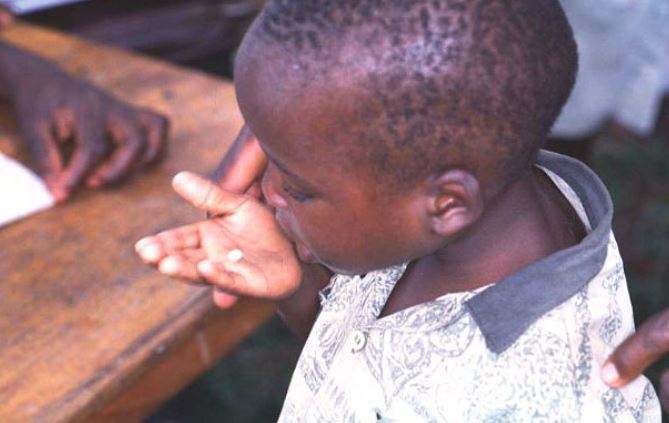The Neglected Tropical Diseases (NTDs) Programme of the Ghana Health Service (GHS) will from August 23 to September 6, 2021, begin a Mass Drug Administration (MDA) for onchocerciasis in endemic regions in the country.
The exercise will be carried out in 66 districts across 13 regions as part of efforts to eliminate onchocerciasis from Ghana.
Children less than five years old, pregnant mothers, and seriously ill inhabitants in some endemic districts will be exempted from the exercise.
In Ghana, MDA is done twice in a year to ensure that every eligible person living in a defined geographical area, regardless of whether or not they are infected receives a single dose of the ivermectin drug.
The ivermectin medication have been used to control onchocerciasis and currently, it is being used to ensure the elimination of the disease from those infected and uninfected.
The GHS has indicated that the MDA, which has been implemented over several years, can significantly control and eliminate the burden of onchocerciasis.
Currently, 137 districts remain endemic for onchocerciasis in Ghana and the Ashanti region has the highest number of endemic districts.
Onchocerciasis is an infection caused by a parasitic worm called Onchocerca volvulus. It spreads by the bite of an infected blackfly known scientifically as Simulium.
It is also called river blindness because the blackfly that transmits the infection breeds in rapidly flowing rivers and streams and bites people living in settlements nearby and causes them to go blind.
Persons with heavy infections as a result of repeated bites by infected blackflies usually develop conditions such as unrelenting itching, unsightly skin disease, nodules under the skin, or eye disease which results in severe visual impairment and blindness.
The control of onchocerciasis in Ghana has been very successful, with an average high infection level of 69.13 percent in 1975, decreasing significantly to a very low level of 0.72 percent in 2015.
The most at risk of onchocerciasis are people who live or work near rapidly flowing streams or rivers where there are Simulium blackfly breeding sites.
Latest Stories
-
Western Region: NDC youth wing embarks on phase 2 of ‘retail campaign’
11 mins -
Action Chapel International holds annual Impact Convention in November
12 mins -
Jana Foundation urges young women to take up leadership roles
17 mins -
All set for Joy FM Prayer Summit for Peace 2024
28 mins -
Managing Prediabetes with the Help of a Dietitian
47 mins -
Joy FM listeners criticise Achiase Commanding Officer’s election comment
1 hour -
Legal Aid Commission employees threaten strike over poor working conditions
1 hour -
Ghana ranked 7th globally as biggest beneficiary of World Bank funding
1 hour -
IMF board to disburse $360m to Ghana in December after third review
1 hour -
Former Bono Regional NPP organiser donates 13 motorbikes to 12 constituencies
1 hour -
Securities industry: Assets under management estimated at GH¢81.7bn in quarter 3, 2024
2 hours -
Gold Fields Ghana Foundation challenges graduates to maximise benefits of community apprenticeship programme
3 hours -
GBC accuses Deputy Information Minister Sylvester Tetteh of demolishing its bungalow illegally
3 hours -
Boost for education as government commissions 80 projects
3 hours -
NAPO commissions library to honour Atta-Mills’ memory
4 hours

